Ways to boost your online presence to get a new job
In today’s candidate short market, recruiters and hiring managers are taking a more proactive approach to headhunting. They’re digging through every resource at their disposal to find the person they need and find what they need to know about that person. Keep on reading and follow our guide to remove, update and add any information…
In today’s candidate short market, recruiters and hiring managers are taking a more proactive approach to headhunting.
They’re digging through every resource at their disposal to find the person they need and find what they need to know about that person.
Keep on reading and follow our guide to remove, update and add any information that will help you be found and contacted by recruiters.
Build your personal brand on LinkedIn
Did you know that more than 90% of recruiters use LinkedIn as one of their main search tools?
If you’re not on LinkedIn, recruiters and hiring managers are less likely to find you when searching for candidates.
LinkedIn is a professional networking platform. It is designed to help professionals meet other professionals and find new opportunities to pursue.
Employers will use it to find top talent. On the backend of LinkedIn, recruiters and hiring managers have access to a range of tools to help connect with candidates.
For example, job seekers can set their profile to “open to work”, which shows recruiters and hiring managers they are approachable. LinkedIn will hide this from their current employers.
Take control of your personal brand and make yourself known to recruiters and hiring managers by updating your profile with our top tips.
Custom URL
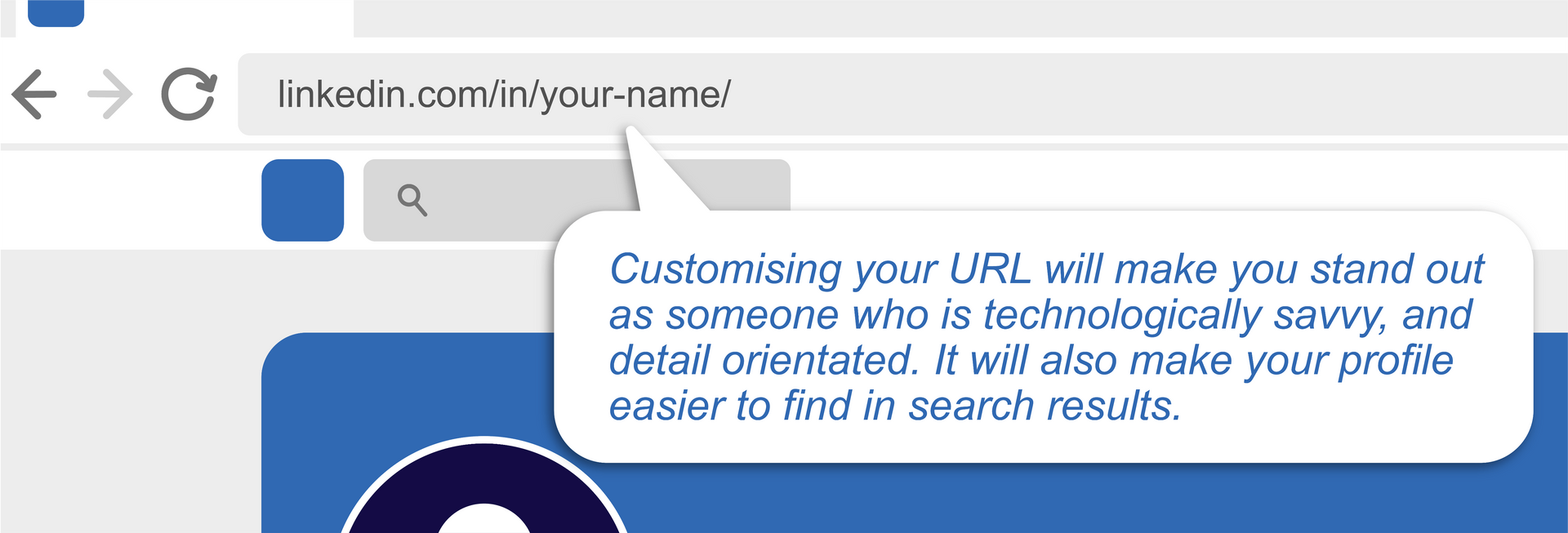
Photos and connections
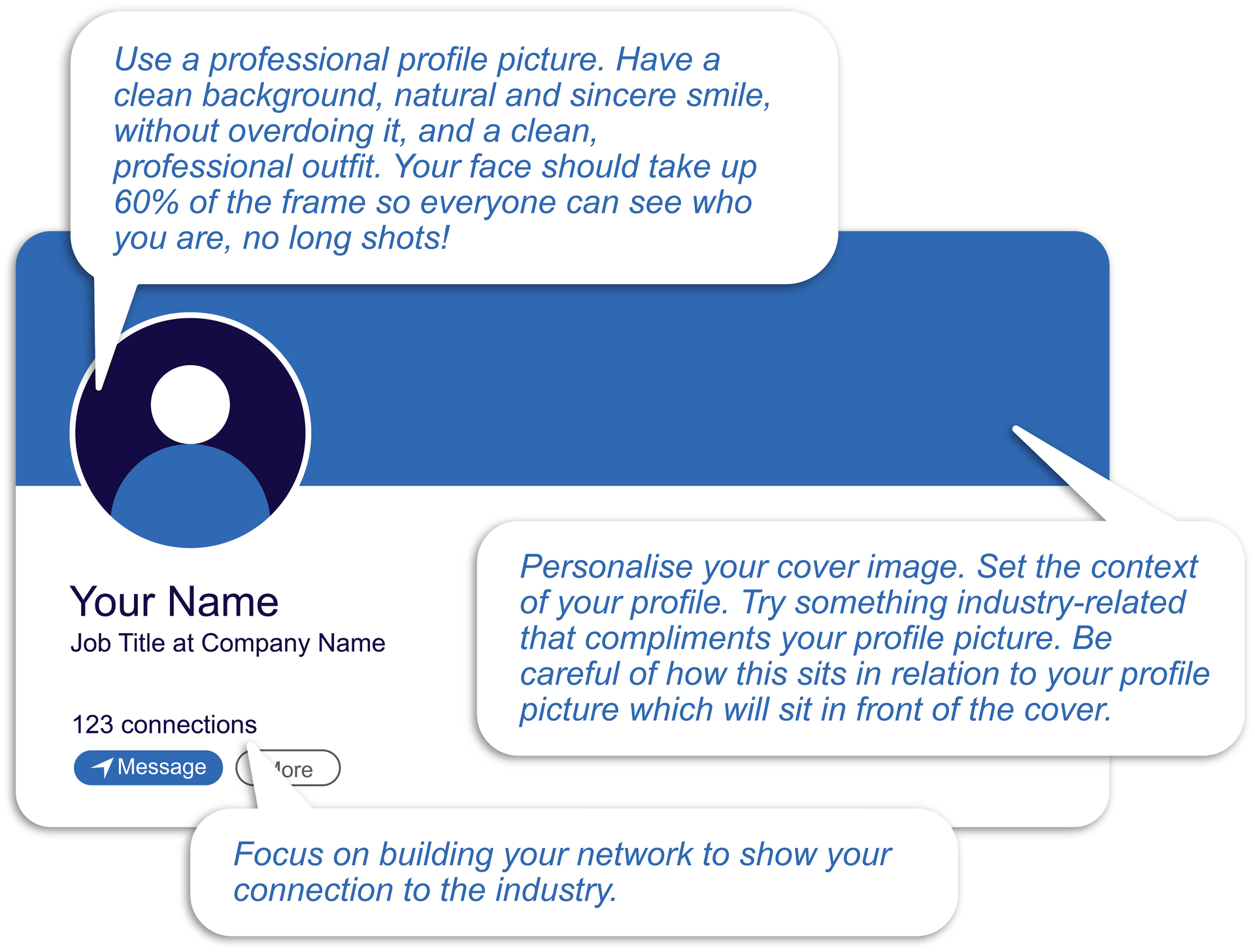
About you
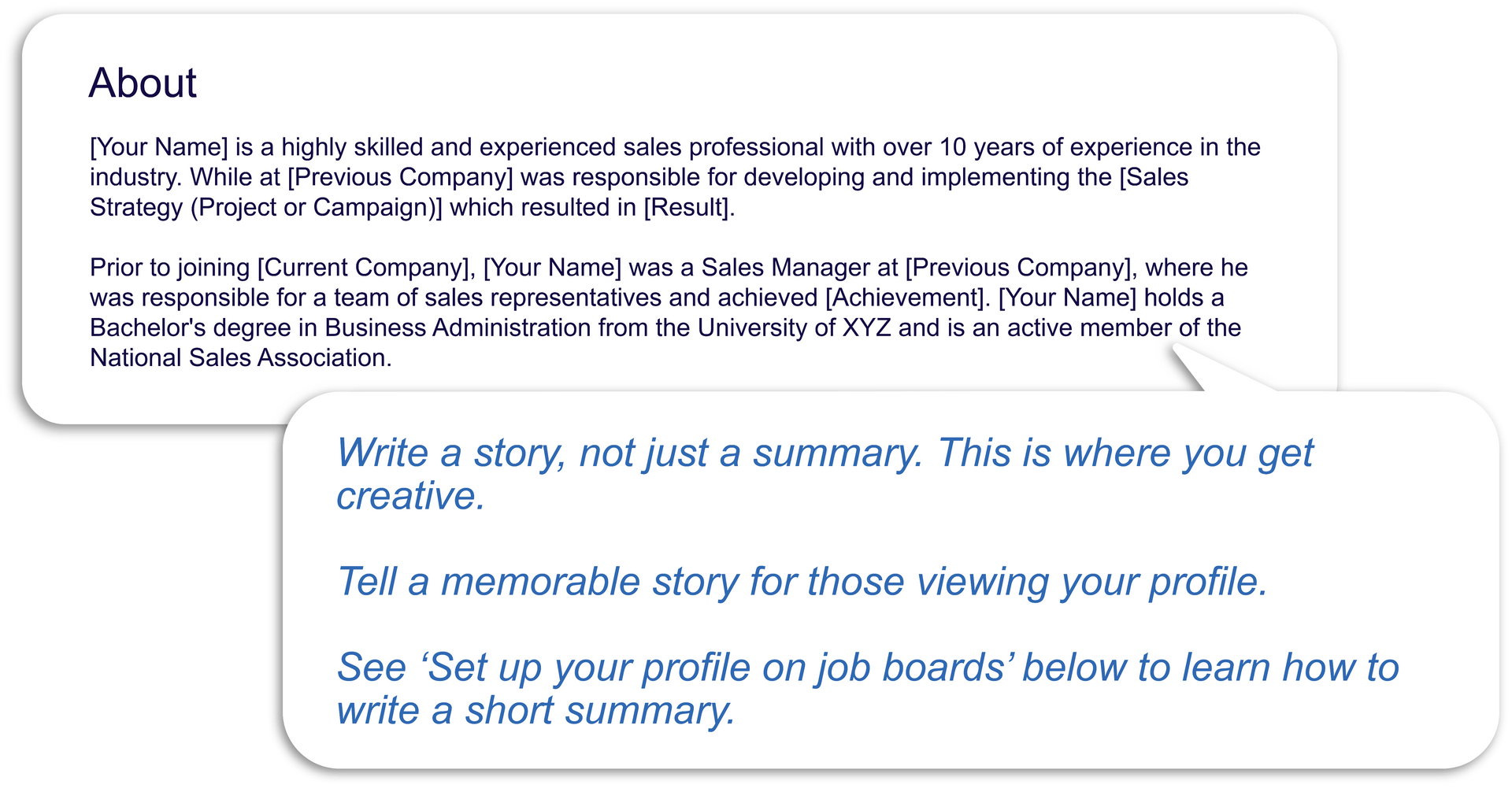
Activity
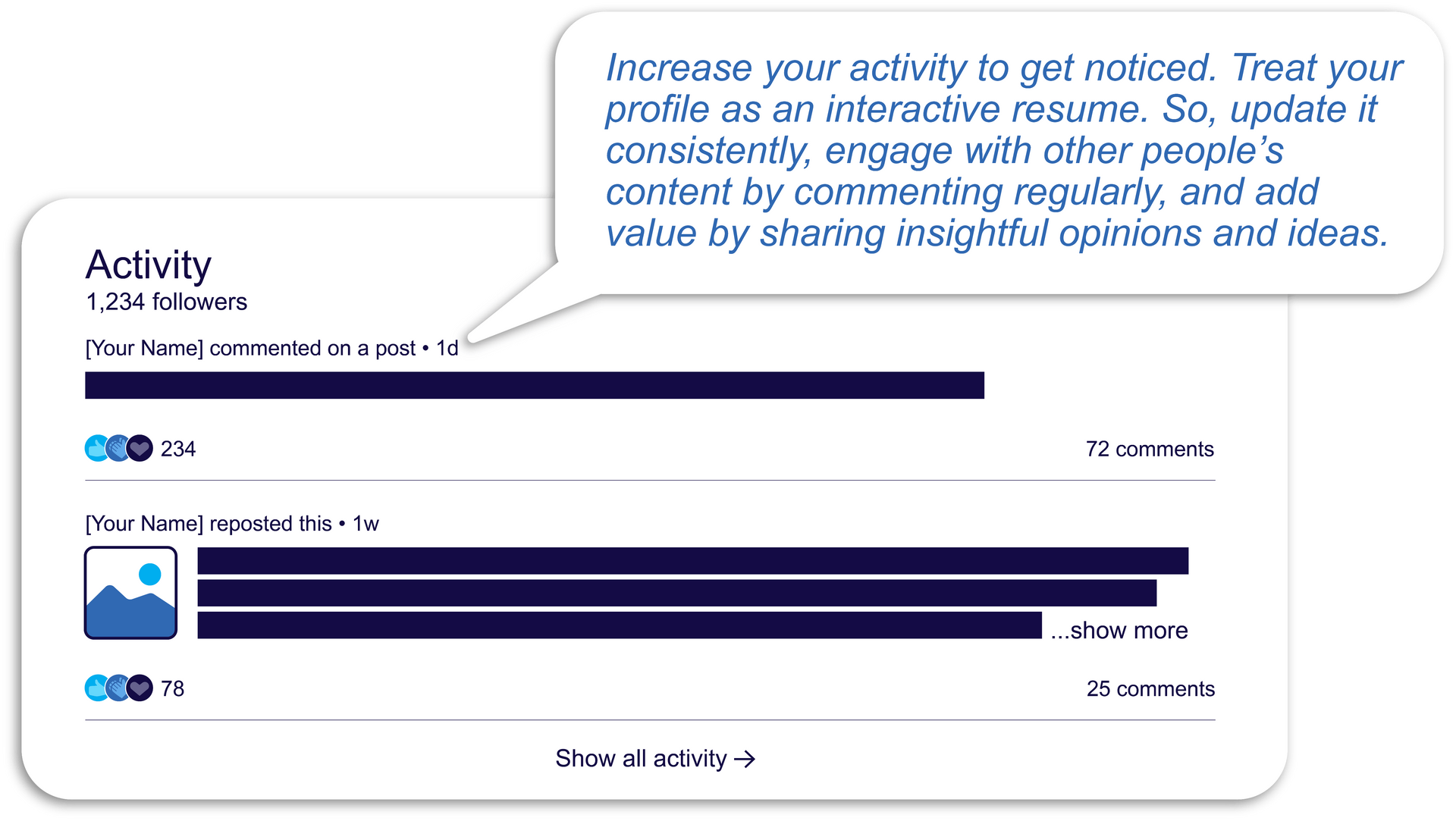
Experience
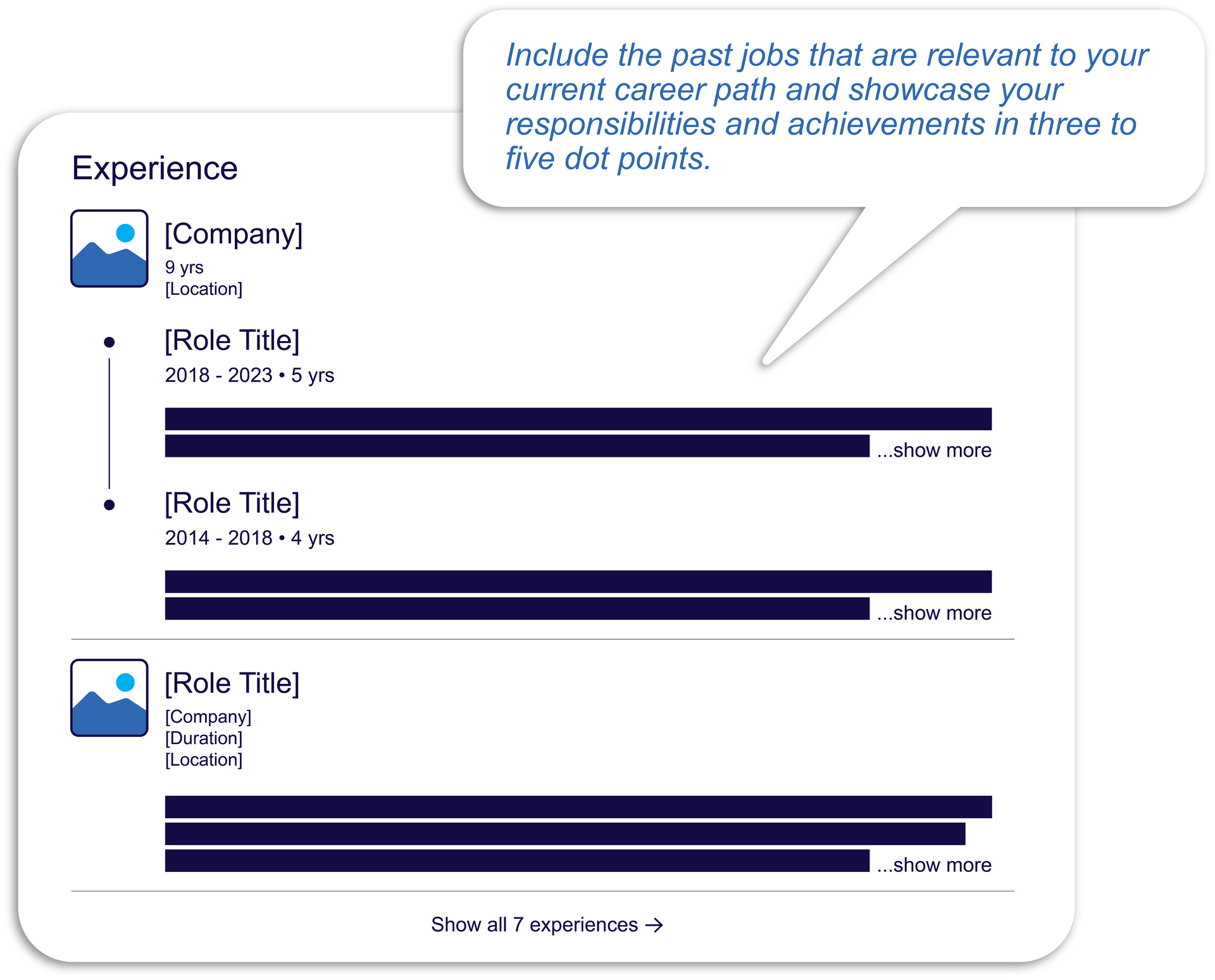
Recommendations
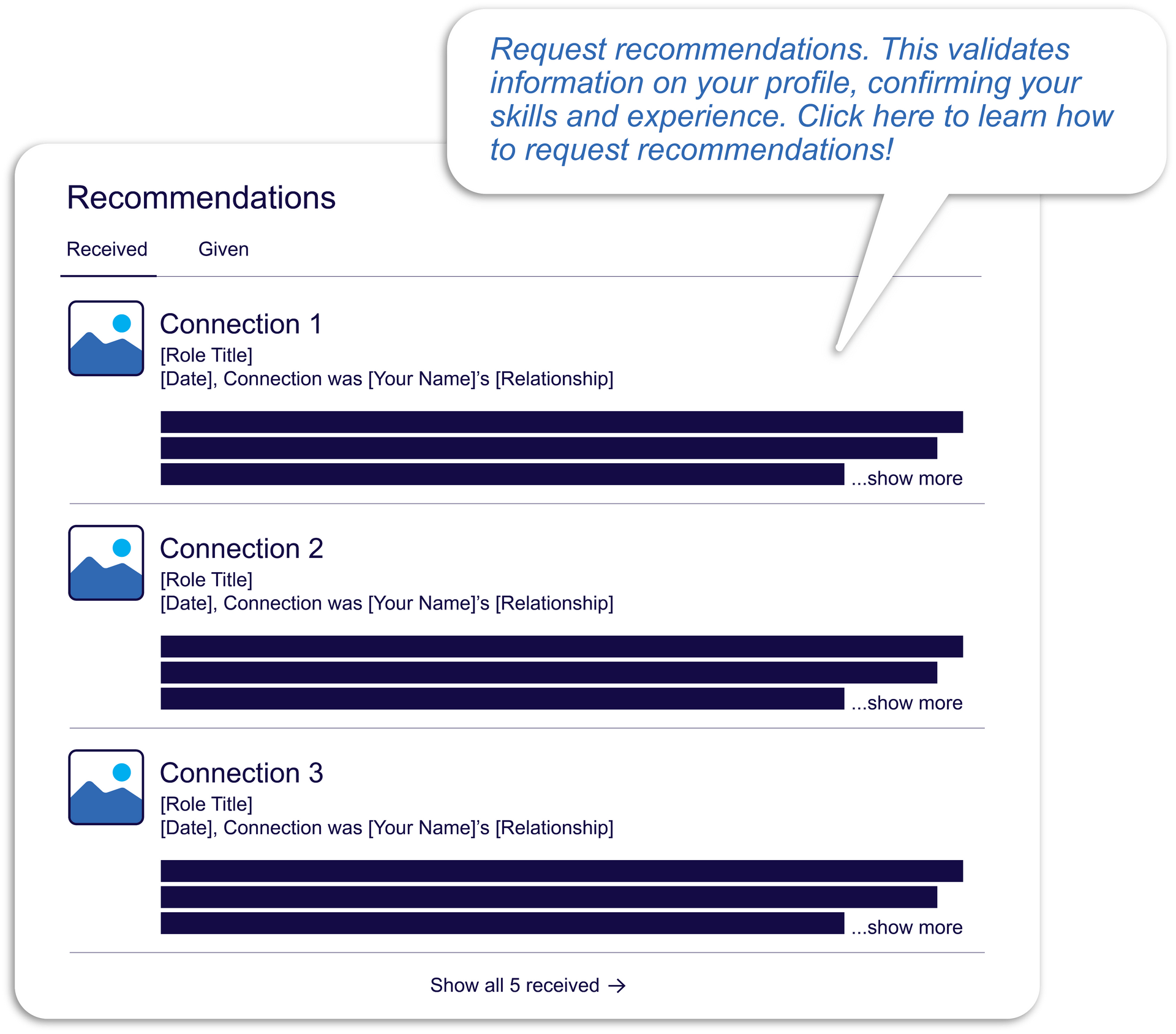
Skills
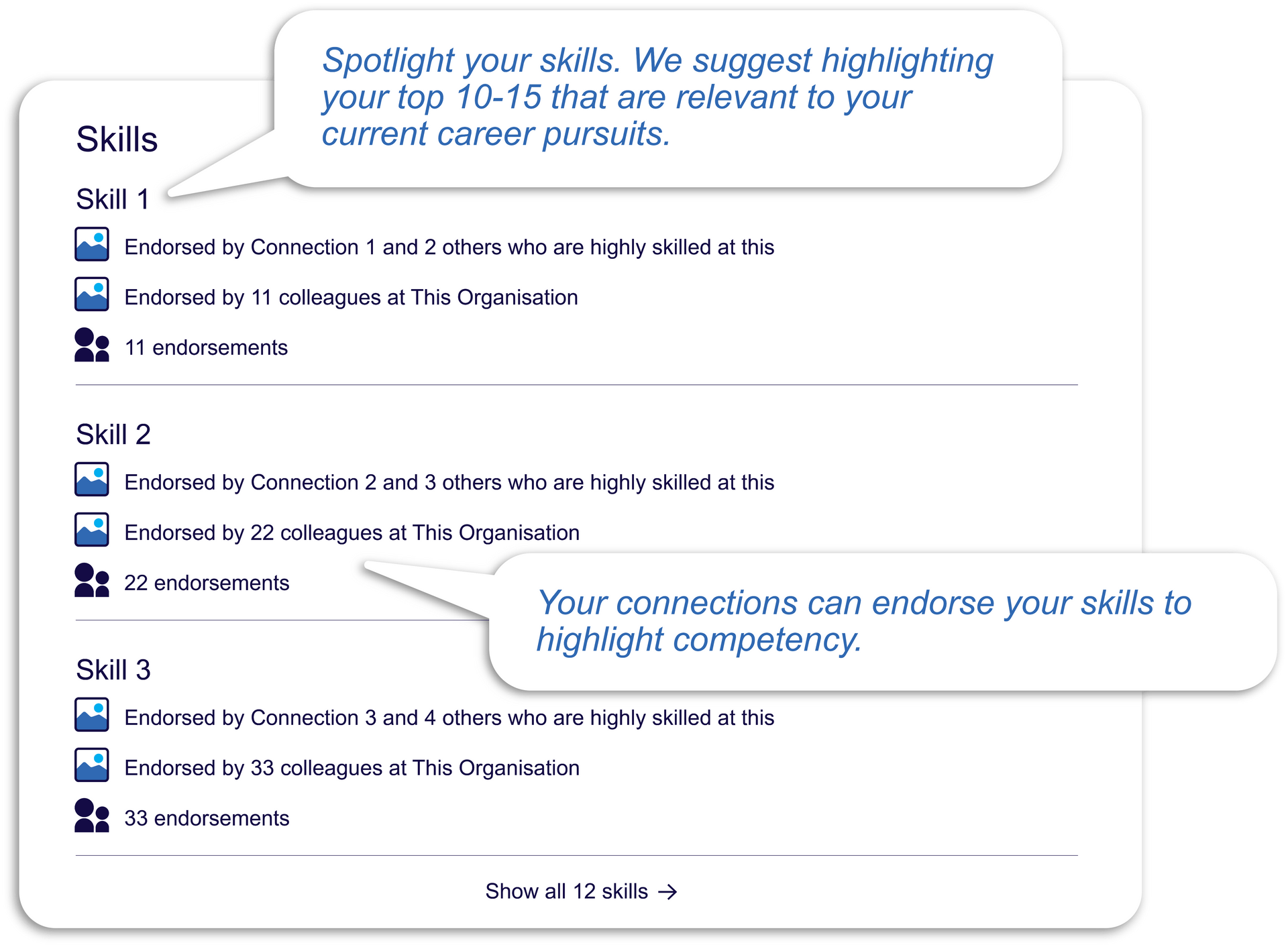
Set up your profile on job boards
Make it easier for recruiters and hiring managers to find you online.
Aside from LinkedIn, recruiters will search through job boards, such as SEEK, CareerOne, and Indeed, to find candidates they want to interview.
When job hunters like yourself create profiles on these job boards, recruiters gain access to the information you provide. Recruiters will look at your job preferences, skills, and qualifications.
If you don’t have one of these profiles, check out our tips below and set them up to ensure you’re being contacted for new job opportunities.
Upload your resume in word format
Many recruiters use resume parsing software to import your details into their database. Resume parsing software scan resumes to find keywords recruiters are looking for. In other words, the software will read your resume and let the recruiter know if you have the skills they are looking for. If the resume parser cannot read your resume, you may miss out on potential roles.
Resume parsers cannot read images, so PNG and JPEG files are a definite no-go. Tables in word documents are also a hit-and-miss with resume parsers.
Sometimes recruiters will need to reformat your CV before putting it through their database. PDF documents can sometimes be tricky to work with – especially if you’ve created them on Canva with fancy stickers and images. Tables can also be hard to reformat.
Use active language where possible
In a sentence that uses active language, the subject is performing an action. In passive voice, the action’s target is the focus rather than the subject of the sentence. Each has its benefits, but the active voice has a more direct and clear tone. When reading resumes and other information about candidates, recruiters just want to get to the point. Therefore, active language is preferable.
Example:
“I was promoted” is the active version of “the promotion was given to me”.
Write a short summary or elevator pitch
Some platforms will provide a small ‘about’ section for you to quickly highlight your qualifications, achievements, and experience. The recruiter wants to know quickly whether to continue looking at your profile or move on to the next person. Make their decision easier by following our instructions below:
- Keep it short – two to three paragraphs will suffice
- Write in third-person rather than first-person
- Tailor it to your audience – who is reading your profile, and what do you want them to do after reading your summary?
- Highlight your qualifications and experience and use specific examples
- Proofread and edit to fix any spelling or grammatical errors
Example:
[Your Name] is a highly skilled and experienced sales professional with over ten years of experience in the industry. While at [Previous Company], was responsible for developing and implementing the [Sales Strategy (Project or Campaign)], which resulted in [Result].
Prior to joining [Current Company], [Your Name] was a Sales Manager at [Previous Company], where he was responsible for a team of sales representatives and achieved [Achievement]. [Your Name] holds a Bachelor’s degree in Business Administration from the University of XYZ and is an active member of the National Sales Association.
Follow the prompts and fill out all fields
Personal profiles on these job platforms have been designed to help the recruiter easily identify whether you’re the right candidate for their role.
Each field is relevant. The more information you provide, the easier it is for the recruiter to learn about you.
Be careful only to include necessary information. More information is better, but there’s no point in including things that don’t matter. For example, you don’t want to include work experience from 10th grade if you’re applying for your second job out of university. Chances are your experience at Kmart isn’t going to be relevant for that accounting role.
Keep your profile up-to-date
Don’t forget to update all profiles after updating one. Recruiters are more likely to reach out to someone who has recently been active in their job hunt over someone active six months ago. The platform shows recruiters how long ago you were last active or last updated your profile.
Choosing your references
Some platforms will ask you to provide details for your references. When deciding who to ask to be your reference, consider these things:
- Are they credible?
- Will they vouch for you and your work ethic/performance?
- Do you have a good relationship with this person?
- What will they say about you?
Your referee should be someone who will help you land the job. They should be someone who has seen how you work so they can provide positive notes to the hiring manager.
A few people to consider are:
- Your boss or manager
- Co-workers or ex-colleagues
- University professors and tutors
- Volunteer supervisors
- Sports coach
Before handing out your reference’s contact details, check in with them first and ask if they’re okay with being your reference. A forewarning will go a long way as it will give your reference time to collect their thoughts and be prepared for when they get the reference check call.
If you’re interested in any of these pathways and want to learn more, speak to our consultants today for a free chat and career advice.
If you’re looking for job hunting advice in 2023, take a look at our job hunting guide below.








